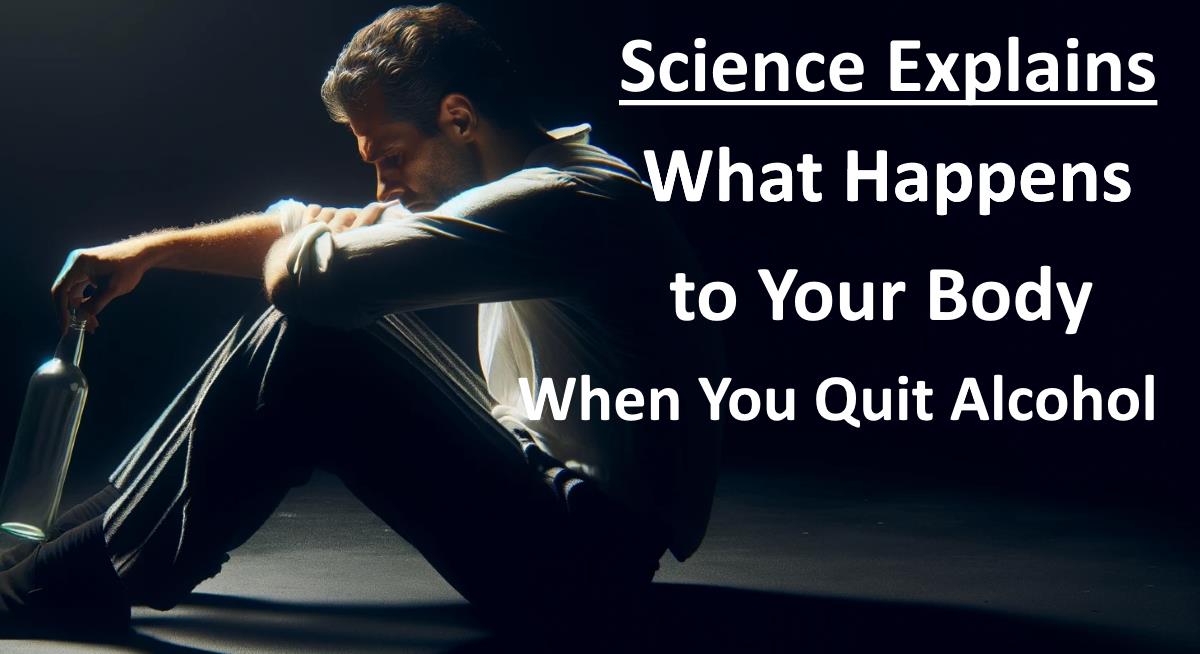1. Immediate Effects – Withdrawal Symptoms
- First 24-72 Hours: Initially, the body, accustomed to the depressive effects of alcohol, experiences a rebound. Common withdrawal symptoms include anxiety, tremors, sweating, nausea, and insomnia. In severe cases, there may be hallucinations and seizures.
- Neurochemical Changes: Alcohol affects neurotransmitters like GABA and glutamate. When you stop drinking, the brain undergoes a period of readjustment, leading to withdrawal symptoms.
2. Short-term Changes – Detoxification Phase
- The First Week: After the initial withdrawal, the body begins to detoxify. Liver function improves, helping to metabolize accumulated toxins.
- Blood Sugar Levels Normalize: Chronic alcohol consumption can disrupt blood sugar regulation. Quitting alcohol stabilizes these levels, reducing the risk of diabetes and metabolic issues.
- Hydration and Kidney Function: Alcohol is a diuretic. When its intake stops, better hydration and improved kidney function are often observed.
3. One Month – Physical and Cognitive Improvements
- Sleep Patterns: Although withdrawal may initially disrupt sleep, many people experience improved sleep quality and energy levels after a month.
- Brain Function: Cognitive functions such as concentration and memory start to improve. The brain begins to heal from the neurotoxic effects of chronic alcohol use.
- Skin and Physical Appearance: Dehydration and toxin buildup from alcohol can affect the skin. Upon quitting, many notice clearer skin and a healthier overall appearance.
4. Several Months – Continued Recovery
- Liver Regeneration: Depending on the extent of damage, the liver can begin to heal itself, reversing some of the effects of alcohol-induced liver disease.
- Heart Health: Improved cardiovascular function and a decreased risk of heart disease are noted, as alcohol can be a significant contributor to heart problems.
- Weight Management: Alcohol is calorie-dense. Its elimination can lead to weight loss and a reduction in the risk of obesity.
5. One Year and Beyond – Long-term Benefits
- Cancer Risks: Chronic alcohol consumption is linked to an increased risk of certain cancers. Over time, quitting alcohol can significantly reduce these risks.
- Mental Health: Long-term abstainers often report better mood stability, reduced anxiety, and a lower risk of depression.
- Immune System: Alcohol can suppress the immune system. Over the long term, quitting can lead to a stronger immune response and better overall health.
6. Psychological and Social Changes
- Behavioral Shifts: Quitting alcohol often requires lifestyle changes, which can lead to improved relationships, better decision-making, and a more positive outlook on life.
- Support Systems and Coping Mechanisms: Successful abstention is often aided by strong support systems and the development of healthier coping mechanisms.
Conclusion: A Holistic Transformation Quitting alcohol sets off a cascade of changes in the body, reflecting its impact on nearly every system. The journey from withdrawal to long-term recovery involves both physical and psychological transformations. The resilience of the human body is evident in its ability to recover and reverse many of the harmful effects of alcohol. This journey, while challenging, offers a path to a healthier, more fulfilling life.
In summary, the decision to quit alcohol can be life-changing. The science behind it underscores the significant benefits of such a choice, emphasizing the body’s remarkable ability to heal and thrive in the absence of alcohol. Whether for health, personal, or social reasons, the journey towards an alcohol-free life is a testament to the strength and adaptability of the human spirit.
